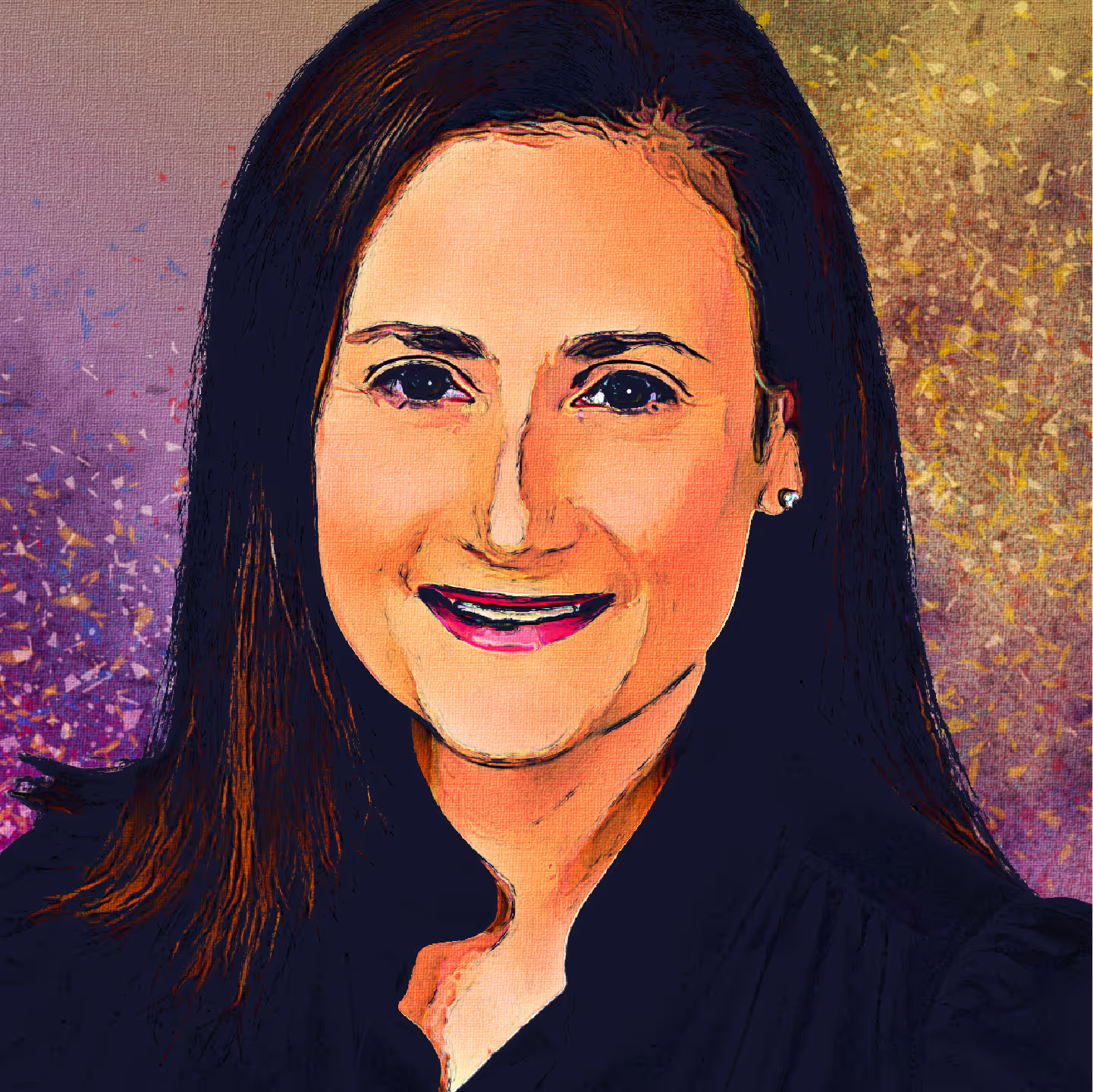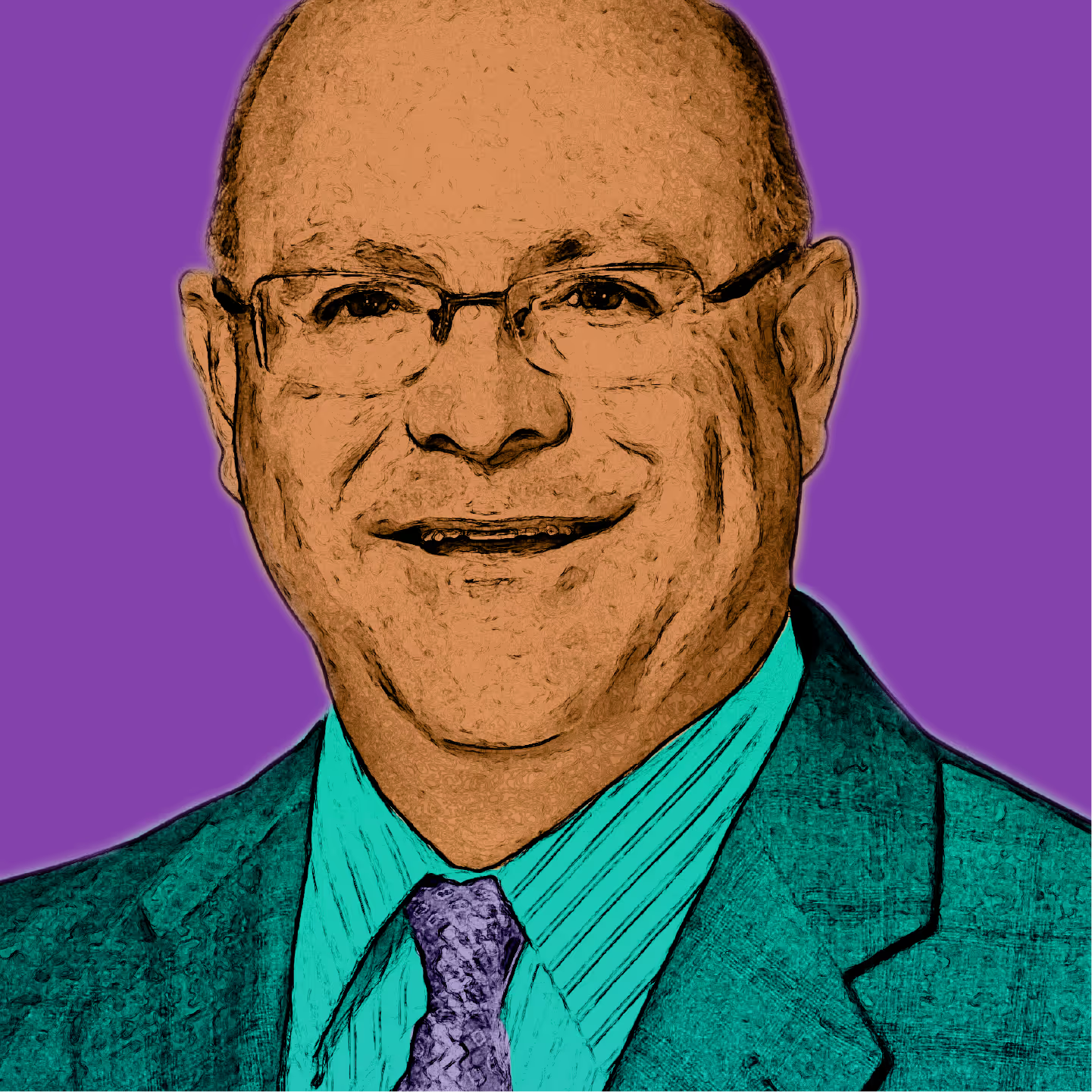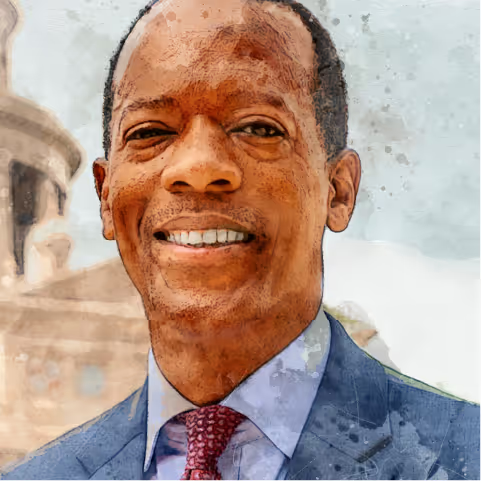Alison Caplan is redefining the work experience in offices, warehouses and beyond.
When Alison Caplan began her career in human resources at a Big Four accounting firm, the department didn’t even rise to the level of “back office”—it was a basement office. Fast forward 25 years: The field of human capital and talent acquisition has a seat at the executive table, and Caplan is one of its global leaders.
As chief people officer at CBRE Group, the world’s largest commercial real estate investment and services company, Caplan revolutionizes the way people work in a world changed by the COVID-19 pandemic.
Her oversight extends well beyond CBRE’s 115,000 employees. The company manages real estate logistics for corporate clients around the globe, helping them plan, lease, design and construct workplaces where employees can thrive and be productive. They turn to CBRE to help create destination offices for employees now accustomed to working from home. Caplan’s long experience in human resources gives her insights into what employees want in return for commuting, and that knowledge makes her a key player when CBRE advises clients.
“The days of biding your time at your desk are over,” says Caplan. “Today, companies want flexible workspaces where, from the minute you step into the office until you leave, you are getting something you cannot replicate at home.”
That office experience starts with innovative physical spaces, such as “the lights, the acoustics, the food in the pantry, the ease of parking or other access,” says Caplan. Another key is variety—from communal relaxing areas that feel almost like a hotel lounge to private rooms for meetings and calls.
With people working more flexible hours, another challenge is creating smaller office footprints that can still accommodate larger numbers when necessary. It’s a balancing act she likens to a restaurant: “You don’t want it to be so packed that you can’t get a table, but you don’t want to eat in an empty restaurant either. If you’re the only person in the office, you might as well stay home.”
Workplace changes go beyond offices. Warehouses, which generally stayed open during COVID, are also rethinking the work experience. “Health and safety were always priorities in places where people are climbing ladders and operating equipment,” she says. “But now, these logistics centers are focusing on employees’ mental well-being and comfort on the job. You want to give these people the resources so they can be their best selves when they come to work.”
Caplan, who works five days a week in CBRE’s Dallas headquarters, says she appreciates the spontaneous collaboration with co-workers, which she missed during the early days of the pandemic. “The office should be a place of life and energy,” she says.
But energy springs from more than just chats around the water cooler. CBRE was one of the first major real estate companies to embrace diversity, equity and inclusion (DEI) programs, starting with a women’s network more than 20 years ago when there were substantially fewer women in commercial real estate. Now, the firm has 18 employee resource groups, representing an array of ethnic communities, disabled employees, veterans and other facets of personal identity.
“From the physical space to the mental space, it’s all about creating a culture of belonging,” she says, stressing that what’s good for workers is good for the corporation. That’s because DEI resource groups aren’t social clubs—they’re a chance to network and grow careers. “When our people learn about the different segments and businesses we have, they realize their career progression inside the company can be horizontal as well as vertical.” The result of these opportunities, she says, is less turnover.
Today, CBRE aims to share its knowledge. “People tend to think of commercial real estate as a mature, one-dimensional industry,” says Caplan. “But office logistics and the work experience are being revolutionized. And we’re going to be a big influencer.”




